Five aviation marketing professionals discuss the classic by Steven Covey – we share our favorite habits, and what’s changed since the first time we read the book!
[fusebox_track_player url=”https://traffic.libsyn.com/secure/aviationmarketing/Book_Club_Discussion_-_Seven_Habits_of_Highly_Effective_People.mp3″ background=”default” ]
Mickey Gamonal:
All right, cool. So, we’re going to try to keep it under an hour. We’re going over today The Seven Habits Of Highly Effective People. We do introductions. So, you say your name, you say what you’re selling. And then we do outros. So, you say your name and hit your pitch. Any questions on how this is going to work?
Debbie Murphy:
No.
Mickey Gamonal:
Awesome. I think for the most part we’ll try to focus on a habit. If there’s one that you like or if you just want to talk about Stephen Covey in general. However you want to discuss the book or the idea of the book. And then we’ll just go in order of appearance. So, I’ll go first and then Mom’s going to go next. And then Jeremy, Larry, Deb. All good?
Debbie Murphy:
Mm-hmm (affirmative).
Mickey Gamonal:
Okay, all right, cool. So, my name is Mickey Gamonal. I am with Gamonal Tutors and I’m launching the ASVAB Domination program. If you want to get into the United States Military with the highest ASVAB score possible so that you can pick a job that you will be happy you picked for the next six years while you’re working it, you want to come work with me, I’ll get you there.
Paula Williams:
Paula Williams with ABCI and we are launching with the help of Mickey Gamonal and John Chvatal the Aviation Sales Skills Challenge, which is a 30 day challenge for … We’re actually looking for 30 pilots or techs who need to learn sales skills in the aviation industry. So, we are just launching that in July and it’s kind of modeled after Mickey’s ASVAB challenge, which has been doing fantastically. So, great.
Jeremy Cox:
Jeremy Cox. I appraise aircraft. I pretty much appraise any kind of airplane that you need to get a value on, rotary fixed, spacecraft, whatever.
Paula Williams:
Spacecraft?
Jeremy Cox:
Absolutely.
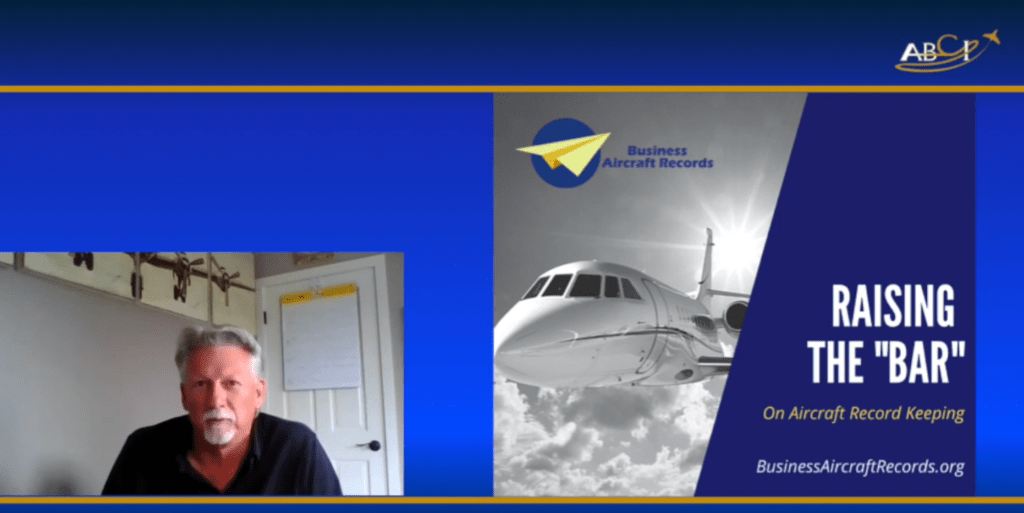
Larry Hinebaugh:
So, Larry Hinebaugh. I am launching Business Aircraft Records, which is a non-profit company. That’s what I’m working on with Paula. Although, Paula and I originally met with trying to do digital logbooks, which I still do. And that is a result of 40 years of doing aircraft records review, a lot of it probably along the lines of what Jeremy needs to have done every time he appraises an airplane. Being sick and tired of the horrific condition of records, I decided I’d finally try to influence the influencers in our industry and do this non-profit. So, that’s what I’m launching with Paula now.
Mickey Gamonal:
Awesome.

Debbie Murphy:
Hi, I’m Debbie Murphy. I’m the Vice President of Marketing and Digital Strategy for JetBrokers. We buy and sell jets and turboprops. [crosstalk 00:03:04].
Mickey Gamonal:
Good deal. Cool. I have a gavel. I talked about it last time. So, if you guys start acting up, man, it’s pretty serious. But you know, so as we go through, like I say, we’re trying to keep it under an hour. So, if anybody’s going super over, we’re trying to give your spiel in like 10 minutes about what you think of the book or whatever. As soon as you start passing 10 minutes, I’ll just kind of show it. And I guess if we hit 20, I’ll start slamming on my computer or something like that. But I don’t think it’s going to get to that. So yeah, I’ll go first.
I’ll talk about the Seven Habits. Last book we did that’s similar was The Speed Of Trust. And that was done by Stephen Covey’s son. And these are kind of in the same vein. So, The Seven Habits of Highly Effective People. I’m just going to tackle one habit for my segment and that habit it be proactive. That’s habit number one. So, it seems fitting since this is the first part to start with habit number one.
So, be proactive, this is really what separates people who do from everybody else, right? If you don’t do something, nothing will ever get done. I really liked the way that he breaks it down in the book as far as this is the kind of fundamental step towards going for what you want to get. I think it’s really easy to lock into your comfort zone. Your comfort zone is typically where you … It’s always where you’re going to feel safest. And being proactive is really what takes you from that. You have to be bad at something before you can get good at it. And being bad at something is not in our comfort zone.
So, being proactive and being in the … they call it the zone of proximital development. So, the area in which you don’t know exactly what you’re doing, but you might learn something, that is really what proactivity means to me. And that is so hard because that’s a daily decision, right? Every single day, we have these distractions that are warm blankets, man. Like, we can sit and scroll Facebook and Instagram all day long, or watch Netflix all day long. And it’s designed to keep us captive and in that comfort zone. So, breaking free from those chains of mediocrity and just sedentary lifestyles is very difficult. It’s tough to go out there and try something new, whether it’s something new ideologically, physically or anything. That is why this habit is so important to me.
Paula Williams:
I remember a conversation we had about a week ago when you were like, “I could go for a four mile run in Las Vegas, or I could sit here in the air conditioning and eat cookies. And my lizard brain wants to sit here in air conditioning and eat cookies.” Do you remember that?
Mickey Gamonal:
Yeah, no, absolutely. It’s 100% true. And every single morning it’s usually, even with the military discipline and everything like that, there’s still that temptation to just lie around and chill out rather than going out and getting after it. So yeah, anybody else have proactive thoughts or anything like that?
Debbie Murphy:
I use journaling for that to help. Well, I’m a creative person. So, when I went to undergrad, I was in art school and we had to do journals and that was because we had to learn new creative things. And to be creative, you have to continually learn. So, that’s a good habit to keep.
Mickey Gamonal:
Nice. I like that. I like the idea that creativity goes hand in hand with proactivity. That’s great. Yeah, because just like I was saying with when you’re outside of your comfort zone. And that’s the only time something is outside of the box, right? They go hand in hand. I never really considered how … Because I don’t consider myself a creative person. So, I never considered creativity being [crosstalk 00:07:34]-
Debbie Murphy:
Well, creating is doing. You have to do something to be creative. It doesn’t just happen. It’s not magic.
Mickey Gamonal:
That’s great. Cool.
Larry Hinebaugh:
Yeah, I write articles and just some things from time to time. And I find creating is a work in process that takes a lot of energy and a lot of time to think things through and edit and do everything else to finally get your creative ideas where you can be happy to share them with other people.
Debbie Murphy:
That’s true. It requires a lot of effort.
Paula Williams:
Right. And Larry and Debbie both, you guys are perfectionists. So, I would imagine there’s probably a little bit of … Some of the people I know that struggle to get things done, it’s because they are afraid of releasing it into the world because it is not finished yet. And it never will be finished in their mind. And if you’re Cecil B. DeMille, you never finish a movie, you just abandon it.
Debbie Murphy:
The painter, Turner, was still repainting his paintings when they were hanging in the British Museum.
Paula Williams:
Oh my goodness.
Debbie Murphy:
He’d go in and redo them. That came later.
Paula Williams:
That’s hysterical.
Debbie Murphy:
I think that’s so beautiful.
Mickey Gamonal:
That’s crazy.
Debbie Murphy:
[crosstalk 00:08:49] creative people.
Paula Williams:
Right. Absolutely. Cool. Anything else on the be proactive? I mean, I think the older we get, the harder it is to not do what we’re good at, you know? And to actually try to do something that we’re not good at because we kind of get into the groove of, I’m good at this. I really am great at marketing. I really stink at sales, so I try to stay away from sales and do twice as much marketing to make up for the not doing sales.
Debbie Murphy:
But no sales.
Paula Williams:
Right. And it doesn’t work that way. I would be growing the business so much faster if I would actually do the sales part. So, I have to throw myself that direction sometimes and make that work.
Mickey Gamonal:
Yeah, absolutely. I’ve been having my own sales struggles. So, it’s a nightmare to talk to people and tell them, “Hey, you’ve got to work with me,” you know? Like, “Wake up. This is what you need, man.” And it’s something that I believe in. But it’s still just impossible to take a complete stranger and convince them that this is something worthwhile without feeling insincere or sounding insincere.
Paula Williams:
But it’s not impossible. You’ve done it, right?
Mickey Gamonal:
Yeah, I’ve got a couple success stories. But it’s a long ways from where it needs to be.
Paula Williams:
Right.
Debbie Murphy:
Jeremy could probably help you with that. Doing sales.
Mickey Gamonal:
That’s true. I’ll have to schedule a sales call. I’ll act like I need a UFO appraised.
Debbie Murphy:
Need a tutor.
Paula Williams:
I need my UFO appraised.
Jeremy Cox:
One problem with sales really is the fact that I often oversell. And I don’t mean that inasmuch as I slap on too much salesmanship and overpromise, under deliver. I don’t mean that. But I’ll get on the telephone and I’ll call some people. I try and do that at least once a week and end up getting loaded up with business. So, you’ve got to be careful with how much you want business and how you sell because sometimes you sell yourself into a big problem.
I never forget that my greatest inspiration, believe it or not, was a guy called Joe Girard. I don’t know if he’s even still alive. But he was in the Guinness Book of World Records for the most successful car salesman on the planet. And he did a series of cassette tapes, which I subscribed to. This is back in like 1991 when I started selling the aircraft maintenance, Sabreliner chapter five corrosion inspections, in fact. And I thought, “Well, I’ve sold. But maybe I need to get some instructions.”
So, I subscribed to Joe Girard’s tapes, and he’s got The Power of 300, for instance, where basically everyone of us touches 300 other people in our lives. So, when you speak to one person, you’re actually speaking to 300 people. And all this rubbish. But basically, his little nuances and sayings were like, “The escalator to success is broken. You have to get there one step at a time.” That kind of stuff. But you know, it’s good, solid stuff. The guy was great. And I guess selling in itself is a habit.
Debbie Murphy:
It is.
Jeremy Cox:
So yeah. There’s nothing much else to say. Thank you, Debbie, but you’ve got to watch out because selling can be really successful.
Paula Williams:
Right.
Mickey Gamonal:
That’s great. I like that. That kind of ties it back to proactivity. When you go out and get the tapes when you’d already sold, you didn’t have to. But you went out, you picked those up and learned from that. That’s exactly what I’m talking about. Great. All right, cool. So, I’m over time, so I’m going to gavel myself.
Paula Williams:
Gavel yourself?
Mickey Gamonal:
Yeah.
Paula Williams:
Cool.
Mickey Gamonal:
Go ahead, Mom, take it away.
Paula Williams:
I’m going to skip ahead to habit number five, seek first to understand and then to be understood. This is the hardest one for me because I get so excited about things that I tend to jump all over people and say, “You have to do this. And this is what’s going on right now.” And getting on office hours with people, I feel like my job is to provide the most value I can in that hour. So, I feel like I have to pour on them whatever goodness I can, you know? “Here’s what you should be doing from my perspective.”
And I need to, and I’m getting better at this, listen first and find out what’s going on with them, because if they just had something change and all of a sudden they need to raise cash. And I’m sitting here talking about a longterm strategy and I don’t know what’s just happened in their life, then I am giving them bad advice. So, I need to seek first to understand. And I think this would solve 100% of the world’s problems if people would learn to do this, especially right now because everybody’s got their mindset and they’re so defensive about everything that’s going on. And they’re right and everybody else is wrong. And they’re so compelled to get their message across. And nobody is listening to each other.
So, if I could do my part in that, and that is to give the other person the first 10 minutes and give them my full attention for that first 10 minutes. And not be thinking about, “How can I apply what I know to what they’re saying?” Just actually become fully engaged and fully, fully listen to that other person for at least 10 minutes out of the hour that we spend together in that formal setting or in informal settings, you know? Whatever it is, that I am not going to gain anything by talking. I gain something by listening. So, that’s my favorite habit and the one that I struggle with the most. And it’s probably that way for a reason, right?
Jeremy Cox:
What you just described is the absolute founding principle of sales, any kind of sales, because you’ve got to listen and not talk. And it’s psychological. Not that we’re trying to be psychologists here. But the reality is, you sit down with somebody and you give them undivided devoted attention and listen. And maybe throw out the occasional question or, “Hmm,” or, “Really?” That kind of thing. By the time you’re done, that other person truly believes they’ve had the most fascinating conversation of their lives. But they did all the talking because everyone loves to talk about themselves. So, it’s psychology 101 and it’s the first rule that you can never break in sales. So, it’s interesting. So, I just thought I had to comment that. I’m sorry.
Paula Williams:
No, that’s great. And I have to mention, when we went to Saint Louis and we had lunch with you and Debbie. And you introduced us to every single person at the Spirit of Saint Louis Airport, and they all knew you and they all liked you and they all had stories for you. And I mean, it was just the neatest interaction that I have ever seen in my life, you know? I was just walking around the Spirit of Saint Louis Airport with you, or at least the coolest sales education I’ve gotten in an hour or less was that particular walk. That was kind of cool. That was amazing. So, I want to be you when I grow up in sales skills. That’s cool.
Jeremy Cox:
Thank you. I’m blushing.
Paula Williams:
I can tell.
Debbie Murphy:
I picked the same principle, so I’m going to wait until it’s my turn to talk about it.
Paula Williams:
I’m sure you’ll have a different perspective.
Debbie Murphy:
[crosstalk 00:17:17].
Paula Williams:
You’ll have a different angle on it though.
Debbie Murphy:
Yeah, I do. It is my favorite one of them.
Jeremy Cox:
So, I guess it’s my turn. And yet again, Jeremy lets down the home team because I’ve never read the book.
Paula Williams:
Wow.
Jeremy Cox:
I don’t know anything about the book. And I can tell you that we’ve had thunderstorms three nights running. And last night, I got a fly up my bottom and decided to lay in bed with headphones on and I went through my Shazam list all the way back to 2015 and added them through Apple Music to my moody playlist. So, I was up until 1:35 this morning. We have an atomic clock that projects above the bed. And finally, I thought, “You know, I probably need to turn in.” And I looked up and it’s like, “Holy crap.”
Paula Williams:
Holy crap.
Jeremy Cox:
So, I’m kind of tired. And behind me is the Rila, R-I-L-A Monastery. It was founded in the 10th century. It’s in Bulgaria. I visited it in 2016, so I just wanted to explain that. I do have a habit of using Zoom backgrounds. I love them. I think they’re fun. They’re addicting. But anyway, moving on into habits.
So, you know, you talk about seven habits. I’ve probably got 50 bad habits and very few good habits. But I can tell you, and it continues on from what Mickey was saying. And the truth is, I think the most important habit you can have, other than taking care of yourself, which looking at me, I don’t do a very good job of that, but whatever. But the fact is, the most important thing you could do is take care of your brain and to always learn. Never ever stop learning. And you can do that through many different ways. I probably get through two audible books a week. I usually read three books at the same time.
I mean, I’ll read a couple, three chapters of a book, put it down. And then another time I pick up a book, which may be two days later, I’ll read another book. And it may take me a month to get through three books. But you know, you’ve always got to have brain food. And the brain food also translates into a much better life, not only because you have a healthy outlook on life, but it enables you to talk to anybody on the planet, as long as they speak English. I’m terrible at French. I took trombone lessons at school to get out of French lessons. And I can’t really speak French and I can’t play the trombone. So, it’s got to be in English.
But if you’re talking to people and they’re speaking English, you can pretty much talk to anybody if you keep filling your brain with information. So, that’s my habit. I make the habit of continually perpetually learning.
Mickey Gamonal:
Right. I think there’s one that falls in line with this one. The one that’s closest anyway to me is the sharpen the saw. And that’s seven. So, that’s kind of the wrap up habit where it says, “Just don’t stop.” Which I think is pretty much what you’re saying, which is great.
Debbie Murphy:
Lifelong learning.
Paula Williams:
Right. That comes from the story, was it Abraham Lincoln? It’s been so long since I read the book. But where, if he had an hour to chop down a tree, he would spend the first half hour, the first 30 minutes sharpening the saw. So, people need to spend that time taking care of themselves and taking care of their brains. Like, Jeremy said, you have to continually feed your brain good stuff because the world is going to feed it a lot of crap, so you need to defend yourself by choosing some of that and sharpening your saw, you know? Sharpening your own saw.
Debbie Murphy:
I think you need to keep your skillset up too. I do graphics, so I have to continually learn what’s going on with that. The programs change, I have to improve my skills. So, there’s always something to learn to continue to be good at it.
Jeremy Cox:
I’ve got to jump back in here and say that one really bad habit that I got into over the last 18 months. And basically, the way I’m removing that habit is I’ve deleted the app of my phone, and that’s Facebook, because Facebook is just outrageous how it sucks you in. It’s like a vampire. And it tries to suck the life out of you. And especially with this age of statue hate and other hatred, I’m done. So, the only way I can access Facebook, which I do from time to time. But I’ll do it maybe three times a week, instead of three times a minute how it used to be. The only way I access it is on my computer or on my phone through the browser. I refuse to use the app now because it’s just … Well, it’s not healthy. It’s not good for my brain. I can tell you that.
Debbie Murphy:
It’s also good not to have the notifications and contact.
Paula Williams:
Right.
Debbie Murphy:
I don’t want to know what’s going on in any social media apps when I’m not looking at them ever.
Paula Williams:
Right. Jeremy, I feel bad because I dragged you into Facebook kicking and screaming like two years ago, didn’t I?
Jeremy Cox:
Yeah, but you know, Paula, it’s just a phase of learning, right?
Paula Williams:
Right.
Jeremy Cox:
And I don’t decry my experience with Facebook. And I’ll still log in from time to time. But it’s just, honestly, I don’t think it’s healthy for me. Other people, absolutely. And you talk to younger people, they talk about apps I’ve never even heard of.
Debbie Murphy:
They use all sorts of things.
Jeremy Cox:
Yeah. And Facebook really is for fogies.
Debbie Murphy:
For old people.
Jeremy Cox:
It’s not for young people. Yeah, exactly. But with that in mind, you’d think it would be at a higher level and a lot … Well, a lot more constructive than it is. And it’s just pure poison. It’s like, old people are me.
Debbie Murphy:
Right?
Mickey Gamonal:
It’s really toxic. It’s like surprisingly toxic.
Jeremy Cox:
It’s horrible.
Debbie Murphy:
I don’t get that because I don’t interact in the wild on Facebook at all. I’m in groups and I go to pages that I do exactly what I want to do. And I don’t look at the rest of it deliberately.
Paula Williams:
Yeah, and you get off, right?
Debbie Murphy:
That’s how I use it. I don’t let it use me.
Paula Williams:
Right.
Debbie Murphy:
The tool.
Mickey Gamonal:
I got to relate this back to the Dan Kennedy book, the No B.S. Marketing To The Affluent. He talks about how Facebook’s going to take the same course as cigarettes. Government’s going to intervene because it’s just so toxic.
Debbie Murphy:
Because it won’t do it for itself, yeah.
Mickey Gamonal:
Yeah. So, I just think that these books do have some crossover. So, I had to sneak it … As moderator, I wouldn’t be doing my duty if I didn’t say, “Wait, we talked …” You know? It was covered at some point. So, I just had to throw that out there.
Larry Hinebaugh:
No, I think one of the issues with Facebook is actually everywhere on the internet and the TV today. It’s just there’s so much information and there’s so many people that have the different viewpoints of it. And you don’t know who to believe and it’s like too much information coming out of it. So, if you spend too much time on any of those social networks, Facebook included, you’re just going to get barraged with information to the point where you’re saturated.
Paula Williams:
Right. I had a medieval history teacher in high school that talked about when the printing press came out. There was this huge outcry that now we don’t know what to believe because anybody can print things. And we’re going through that same thing where we’re just going to have to start blocking people and start moderating our own friend list because Facebook is nothing but a container, right? All it is is just like a telephone with multiple lines coming in and one line going out. And if you have people on your party line that are poisonous, they’re constantly feeding you poison. So, I have blocked a ton of people because they get nuts, you know? It’s like they are totally different people on Facebook than they are in real life. So, that’s a thing.
Debbie Murphy:
Yeah, we have to curate … You have to curate your feed.
Paula Williams:
Right.
Debbie Murphy:
You don’t allow anything to come in.
Paula Williams:
So, get better friends, you know?
Debbie Murphy:
That’s what blocking and unfollow and unfriend is for.
Paula Williams:
Right, exactly. Exactly. There’s always plenty of people out there that are decent and will share their cat videos and their grandchildren and their gardens, you know? And their airplanes. That’s what we’re here for, right?
Debbie Murphy:
Actually, Instagram’s a great place to share airplanes.
Paula Williams:
Yeah, that’s absolutely true.
Mickey Gamonal:
Cool. Well, let’s take it back to Jeremy’s point, the not sharpening the saw, but the brain food, constantly learn. So, that’s a great point. And I’m happy we all are fairly in a consensus as far as social media platforms and that. But we’ll move on to Larry at this point.
Larry Hinebaugh:
Okay. Well, Paula stole my thunder here with the habit. I actually read-
Debbie Murphy:
That’s the one that we all like it.
Larry Hinebaugh:
… Stephen Covey’s book back in the late 90s for the first time. So, I have to admit, this one I only perused, although I’m sure there’s a lot of changes and additions. And I did get this and Never Split The Difference almost on top of each other, so I decided to peruse this one and read that other one. But in looking at this one, I did realize of the habits that he says, a lot of them are useful and I think I apply. A lot of them I slip back and I don’t do it for a while. And then I’ll get back in the groove, you know? Not really focused on the habit, necessarily from the book, but just something that I do normally.
But boy, habit number five is the one I struggle with too. And that’s seeking first to understand. And that is a big part of sales, I realize it. I am not a salesman by any means. I am an engineer and somewhat introverted. And I personally don’t like sales or salesmen that much. But they are a very essential part of life. And whether you’re in sales or not in sales, I think learning what the other person has to say in their thoughts and feelings is really important before you begin expressing your thoughts and feelings so that you reach an understanding.
Paula Williams:
Absolutely. And Larry, I’m just happy you’re here because I know video is not a lot of people’s first love. But I think it’s becoming more important as we’re going forward and things like that to be on video and to be able to have a conversation on video. This is a skill where we have to learn to listen to each other and not step on each other. And there’s a whole bunch of jokes about how Zoom is notoriously bad for that, you know? Because it’s really hard to have a group conversation and have it make sense. But this group is so fantastic for that. I’ve been in groups that are terrible. And you guys just make me happy. You make me smile.
Mickey Gamonal:
Nice. I like that it’s all listen first and then, seek first to be understood. But I’m so … It’s funny that we always relate it back to sales, like straight away, right? Is there another vein of seek first to understand-
Debbie Murphy:
There is. I’m going to do the same topic, so I’m saving it.
Mickey Gamonal:
Okay, cool.
Paula Williams:
There is another vein though in terms of … And I think Larry kind of hit on it. And that is finding your market, you know? And Larry’s come at this from two different angles, of a company and then a non-profit, where you’re looking at marketing data and coming to different conclusions and things like that. So, part of it is not just … People think that marketing is just broadcasting. Did I just skip? Or am I-
Mickey Gamonal:
That was me. I was frozen.
Paula Williams:
Okay, cool. Am I a skipping record? Okay, yeah, there’s a lot of … People think that marketing is just broadcasting, you know? From back in the CBS, NBC, ABC Superbowl commercial days, you know? In the 80s and 90s when everybody was watching and listening to the same thing. Things are so fractionated these days that you have to do a lot of data analysis in order to position your message right. It’s not just broadcasting. It is finding out who you’re talking to and positioning your message to them. And hopefully, Debbie, this isn’t the other angle you were going to take.
Debbie Murphy:
No.
Paula Williams:
Good.
Debbie Murphy:
No, it’s not. It’s good. That’s a good point.
Paula Williams:
I can’t believe I didn’t … Both weren’t your angles. So, I think listening is also about that data analysis and figuring out, you know what? All of my customers are country music fans. I just found that out by looking … Well, not all of them, but an awful lot of them are country music fans. I had no idea until I started looking into the Facebook data of people who have some things in common that are demographically appropriate for a thing that I’m going for right now. And I’m like, “I never would have put that together.” They’re country music fans. Okay, so that tells me that maybe I need to change some of my word choice and that maybe tells me that I need to speak a little bit differently than I would otherwise, you know? So, learning more about your audience is the same thing as listening, right?
Debbie Murphy:
Market research, right.
Paula Williams:
Yeah.
Larry Hinebaugh:
Has anyone read any of the Splitting The Difference yet?
Debbie Murphy:
I haven’t.
Larry Hinebaugh:
He does talk about that. I mean, that’s a real skill as a negotiator is to understand the thoughts and the feelings and the emotions behind the words that the person you’re negotiating with are saying, it’s really important. So, that’s a big part of I think everyday interaction with people, whether it’s sales negotiation or whatever. It’s good to know where a person’s coming from in order to know how best to communicate with them, I think. And it’s something, like I said, I know I struggle with it all the time. I always want to get what I want to say out and don’t always listen to what the other person has to say first.
Debbie Murphy:
It’s almost like a meditative practice to listen this way.
Jeremy Cox:
You know, I was just going to jump in before Larry mentioned the other book. You know, we’re all sales-centric in this group. And the reality is, it’s also a matter of mental health and sanity. And as important as it is to listen to other people, especially somebody one on one you’re interacting with, it’s equally as important, if not more important to actually listen to yourself. You just sit there, and as my mom in England says, just be. And you have to take time where you just be. You sit quietly and you start listening to the voice in your head. And I’m not talking about voices, I don’t have … But it is part of the sanity of maintaining your sanity in listening to yourself and having that conversation in your head because to me, I’ve never been able to journal.
I’ve always wanted to be a journaler, Deb. And I’ve probably got six or seven journals that may have a couple of months each in them. And it’s interesting to go back and read it. But I’m just not a journaler. But I journal in my head for sure, because I’ll have those conversations from time to time. And it kind of puts everything back into the rightful places.
Debbie Murphy:
Your vlogs are journals. They’re just online.
Jeremy Cox:
Well yeah. But you know-
Debbie Murphy:
That’s an aviation, you know? It’s similar practice.
Jeremy Cox:
True, true. I just wanted to say that, that’s all. You’ve got to have a good mental brain defrag.
Debbie Murphy:
Yeah.
Mickey Gamonal:
It’s great to listen to yourself as well. Great.
Paula Williams:
That is absolutely true, and especially I think there’s limits on who you should listen to. And Mickey and I were talking about this earlier. When he was younger, I used to worry about who he was listening to, you know? Music and this and that and the other things because it becomes pollution in your head, right? But now I’m not afraid. He can listen to anything he wants to and I know he will be able to entertain ideas and put them in perspective and manage that in his head in the right way. So, he can listen to anybody now. But I have to sometimes manage who I’m listening to because I find myself becoming more like the people I hang out with the most. And everybody has a relative or something like that that’s sometimes negative and things like that. So, if you listen too much, you become, especially if you’re kind of an empathetic person, you start to feel the way that they feel. And that’s not cool, you know? So, you have to protect yourself and police your listening habits, I guess is a good way of putting that.
Debbie Murphy:
Curate.
Paula Williams:
Curate. There you go.
Mickey Gamonal:
Well, I’m personally just interested to know what Deb’s take is because if there’s a different vein, I can’t imagine that we haven’t killed this horse dead. But I think you got it. You sound like you had something else.
Debbie Murphy:
No, I think I take it from the collaboration point of view. To collaborate people with people, you all need to be able to listen empathetically and hear each other and come up with an idea. And that’s my favorite how I take this empathetic listening part. It’s a practice that if you collaborate with people effectively, you all have to do it at once. So, it’s a team practice. And it works really well. We are learning it in doing our Zoom meetings, we practice it. We have to listen to each other and have a comment thoughtfully. We can’t just be thinking of the next thing to say or it doesn’t really work. So, that’s the point of view I look at it from. It’s a little different from sales.
Mickey Gamonal:
No, I like it. I like it. It’s almost meta, right? It’s a little bit further out. So that’s great.
Debbie Murphy:
And I have to do that with the people I work with because I do marketing, so I have to understand what they’re doing and hear them. And you know, then me to see what I can do for them for anything to get done.
Paula Williams:
Right. Well, the art that you make, Debbie, this is a skill that I really, really admire. You take data from JetNet or wherever you’re getting it from and from your sales guys and from a lot of different sources. And you make it a visual piece of art, literally, that reflects your brand and it looks good and it conveys one idea at a time. And all of that is so hard to do. I mean, you make it look-
Debbie Murphy:
Appropriately sized for the media that I share it into.
Paula Williams:
Exactly.
Debbie Murphy:
I have to think about that, all of those.
Paula Williams:
Right, so express all of this data in this big of a square, that’s fantastic.
Debbie Murphy:
It’s fun.
Paula Williams:
No, I really admire what you do because that is a gift and I can see how that comes from being able to truly understand the data in order to communicate it visually, you know? Not everybody can do that. I can’t do that, you know?
Debbie Murphy:
I guess it’s a skill I’ve practiced, so I’ve learned it over time.
Paula Williams:
Yeah, right. But I can see how the listening really falls into that in a really cool way.
Debbie Murphy:
And I’m an introvert, so it’s easier to practice listening before I speak. So, it suits my personality better.
Paula Williams:
There you go. No, that’s fantastic.
Larry Hinebaugh:
Amen to that.
Paula Williams:
That is cool.
Mickey Gamonal:
I’m happy we got these introverts online. I mean, geez, video, audio, you guys are all synced up, you know? That’s great.
Debbie Murphy:
I actually like this format talking, it’s easier for me.
Paula Williams:
Yeah.
Mickey Gamonal:
That’s cool. I was actually talking to a Peace Corp buddy of mine who always wanted to be a teacher. And he was telling me that some of his students who used to act up in class are doing so much better with the online stuff because they don’t have to play up. They don’t have to show that they’re class clowns. They don’t have to keep up social appearances. And so, he’s shocked that the kids who used to do well who were a little bit shy, some of them started doing worse. And the ones who were outspoken and ridiculous in class started doing better with this big change. So, it’s just another reminder that we don’t know what we’re doing as humans. Like, we have these expectations for what people will do. And it’s never right, you know?
Paula Williams:
Right. Jeremy brought up a point earlier about language. And I know, Mickey, you had some experience with this. Sometimes you go into a situation where you don’t know the language, or you have gone into a situation where you don’t know the language. And you have managed that by listening. So, that comes back to that same habit.
Mickey Gamonal:
Yeah, no, I think that’s super important. Listening isn’t just listening to the words, right? Otherwise texting would be a perfect form of communication. And we all know that texting is like the worst form of communication, right? You don’t know what anybody’s feeling or thinking or saying really, you know? Like, you see this string of text and it really gives you zero information. And that’s why I was able to kind of get by while I was in the Peace Corp, while I was in Morocco. I had the language skills of a five year old. And I’m having meetings with the director of the youth center. And the only way that I don’t sit there looking like a complete idiot, which is what happened the majority of the time. But any time that I seemed remotely intelligent like I had more than one brain cell was when I was listening. It was never when I was talking, it was when I was acknowledging what they were saying always, always.
Debbie Murphy:
That’s an interesting way to learn that, like to practice it, not actually understanding.
Mickey Gamonal:
Yeah, it had a lasting effect, definitely.
Jeremy Cox:
Staying with communication, I’ve got to admit this, for years I battled the problem with email. And email, absolutely spectacular. And obviously we went … In my lifetime, I’ve gone from the Telex to the fax machine to email. And it just … I had the problem with email that I would come across like I was shouting or I was insulting or I was rude or being obnoxious. And that wasn’t my intent whatsoever. But I guess my written or typing voice is mean. And I’ve got to hand it to text because text, since you’re so limited because … I mean, who the heck wants to sit there and use their thumbs to type out this long message? So, it toned my voice down, my electronic voice. And personally, I prefer text to email because it seems to be a direct communication that’s concise and it doesn’t … For me anyway, it doesn’t imbue any kind of emotion transmitted to the reader, which for my case is a good thing.
But this is, staying with communication, a habit which every one of us are losing. And it’s a habit that I think is crucial as a human being. And that’s why business aviation exists, the face to face communication. But it’s crucial, very few of us have business jets and it’s expensive to take a flight to go see somebody face to face and do that 50 times a week. So, the next best thing other than video chat, which is a game changer for everybody. But the habit we’ve all got out of is picking up the telephone. And I will physically in my head say to myself, “You know what? You’re going to send an email. You’re going to send a text. Just pick up the phone and call them.” And it’s so much better because you end up … Every call usually ends up being … It’s an exciting moment of interaction. You learn so much, you have fun, you laugh. I mean, I rarely … In fact, I’m not sure if I’ve ever laughed.
I mean, back when it was politically incorrect, which was the great days pre-Bill Clinton, everyone … I mean, I would go to Waldenbooks and buy dinner table jokes because you’d always go out to client lunches and it was one [upmanship 00:44:15] as to who could tell the fresh joke. And everyone would be rolling about. But I’ve got to tell you, apart from back in the old days when I used to get some bizarre things in email that would make me laugh, I don’t think I’ve ever laughed when I’ve typed an email.
Paula Williams:
Good point.
Jeremy Cox:
You know? I laugh a lot on the telephone, I love it. So, it’s a habit that we all need to get back into. So, get back into making telephone calls. There you go.
Debbie Murphy:
That’s a good sales thing. It sounds like the sales manager, “Make your phone calls.”
Jeremy Cox:
Exactly.
Larry Hinebaugh:
But I’d agree with you, Jeremy. I mean, you can … One phone call, you could accomplish what you can’t accomplish sometimes doing half a dozen emails back and forth. It’s a much better form of communication. I agree.
Debbie Murphy:
You can complete the conversation in the phone call. In an email’s just partial, one part, one side of it, one piece, you know?
Paula Williams:
That is true. I know, I hate the phone just because … And I’m not sure if it’s like a form of introversion or something like that. And I keep coming back to the story, but sitting at the table with Jeremy in Saint Louis and he picks up the phone and calls 47 people and says, “I’ve got somebody here from Salt Lake City that you need to meet. Let’s get together.” And I was thinking, if I were any kind of a sales person, if I were going to the Spirit of Saint Louis Airport, I would have already made those calls. But I’m not any good of a sales person because picking up the phone is not something that occurred to me, you know? But it was so effective when Jeremy did it. And it was just this eye opening thing to see that happen and go, “Wow, that’s so powerful. I could do that.” That’s amazing, you know?
Debbie Murphy:
You were in his home base though too, which was [crosstalk 00:46:12].
Paula Williams:
Yep, that’s true. They [crosstalk 00:46:12]-
Debbie Murphy:
Weren’t you the president of the Saint Louis Business Aviation whatever?
Jeremy Cox:
Greater Saint Louis Business Aviation.
Debbie Murphy:
And you know everybody.
Paula Williams:
Right. And they’ll take your call. They won’t take my call.
Debbie Murphy:
He knows everybody.
Paula Williams:
Right. Exactly. Mickey, how do you think … I know I’m going to pick on you because you’re from a different generation. But I know kind of the notorious thing that you hear about demographics is that young people don’t like making phone calls. Do you think that there’s truth to that or there’s reason for that?
Mickey Gamonal:
I think that’s accurate. I think young people are much more likely to screen their phone calls and not pick up if it’s a number they don’t recognize. But I also think there’s something to be said for voicemail, right? A voicemail now has more gravity than it used to, right? Because now when you leave that voicemail, they’re like, “Wow, this person’s actually talking to me,” which is kind of crazy for the younger people.
One thing in regards with the phone, when I was in basic training, it was all letters. And so, the letters would go, they would take two weeks to get there and two weeks to get back. And they really highly regulate how long you can be on the phone. So, I would call my girlfriend for five minutes and I would knock out everything that I went to her over the last three weeks, you know? In a course of 180 seconds. And you’re right, the efficiency of the phone call is bar to none compared to emails, texts, or letters. Yeah.
Debbie Murphy:
I noticed the younger people like to text me and not talk on the phone. Like, I have a 13-year-old niece who you’ve got to text her. She doesn’t want to talk on the phone, or Instagram or some other thing. Yeah.
Mickey Gamonal:
Yeah, I can’t get ahold of my cousin. He refuses to answer for my call. But he’ll message me back all day, no problem.
Debbie Murphy:
I don’t know. However they want to do it, it’s fine.
Paula Williams:
Know your audience, right?
Jeremy Cox:
None of that is unique. None of this is … That’s what’s crazy. It’s all about going back in time and looking at history. History repeats itself over and over. And growing up in the UK, I’m not sure. The Chinese probably invented it. But whatever country you grow up in, you find out that the country you grew up in, they invented everything. That’s what they teach you in school. But we had a very, very virulent and effective postal system long before I was born. And the Victorians probably perfected communication, written communication. And the text of Victorian times, the 1850s on, 1870s, 1880s probably the absolute peak was sending letters in the mail. And there were four posts. They call it posts. But there were four posts in the UK anywhere in the country. And you could write somebody a letter at 8:00 in the morning, put it in the postbox. And they’d have it by lunchtime and they’d be responding to you. And in the mid-afternoon post, you’d get a response.
Debbie Murphy:
Wow.
Jeremy Cox:
Literally. And so, society kind of de-evolved from using the postal system and then that reevolved with electronic communication. So, the written word has been around for a long time. And rapid communication through the written word has been around for a long time. But it’s just come full circle with texting and email. So you know, it’s not something new is what I’m trying to say.
Paula Williams:
Right. You know, that’s interesting because I bet that the culture was a thousand times different when people were communicating four times a day with the written word, as opposed to in the United States where you’d write a letter in New York. The Pony Express would take four or five days to get to San Francisco. So, the people in San Francisco are making their own decisions and doing their own thing. And companies, I think in the United States, and people in the United States tend to do their own thing a lot more readily because they had to make their own decisions and we kind of evolved that way with the Wild West and all that other crazy stuff.
Debbie Murphy:
I think it was the distance. UK’s pretty small. What is it? The size of the state of Missouri? Or is it smaller? Maybe it’s bigger than that. Maybe it’s the size of two medium sized states.
Paula Williams:
Right.
Debbie Murphy:
Yeah, it’s pretty small.
Paula Williams:
But some poor pony can get from one side of England to the other.
Debbie Murphy:
Yeah, it’s much easier, or a train. They had great train system, so you could put it on a train.
Paula Williams:
Right. Exactly.
Jeremy Cox:
Hey, I got breaking news for you all. I just got an email from Ed [Bowlan 00:51:18]. He says MBA base in Orlando is canceled.
Paula Williams:
Really?
Jeremy Cox:
Yep.
Paula Williams:
In October?
Jeremy Cox:
Yep.
Paula Williams:
The big one?
Jeremy Cox:
Yeah, so the next time base happens will be Las Vegas October 12th, 13, 14 in 2021.
Debbie Murphy:
It’ll be back in Vegas.
Jeremy Cox:
Back in Vegas.
Paula Williams:
Wow, Vegas. And we’ll see Mickey.
Debbie Murphy:
Yep.
Jeremy Cox:
Yeah.
Paula Williams:
Mickey’s backyard.
Mickey Gamonal:
Yeah, you guys can come by.
Paula Williams:
Breakfast at Mickey’s house.
Mickey Gamonal:
All right, cool. So, I’m going to invoke. Are there any final words on The Seven Habits? Anybody have any last minute things to say?
Paula Williams:
I would just say habits are a thousand times more powerful than any Herculean effort. So, that’s one of the things I really liked about the book is that if you can make something a habit, it doesn’t matter if you do it perfectly every day, doing things consistently is just a thousand times better than any … And people always want to do some big marketing push and that kind of thing. And I’m like, marketing habits are a thousand times more powerful than any particular campaign or push.
Mickey Gamonal:
I like that. Slow and steady.
Paula Williams:
Yeah, slow and steady.
Mickey Gamonal:
Good deal. All right. I’m going to pitch out. So, I’m Michael Gamonal. I’m doing the ASVAB Domination program with Gamonal Tutors to help people get the jobs they want in the United States Military. If that is you, you should probably talk to me. And we can see if we can get you that high flying career.
Paula Williams:
Right. Absolutely. Paula Williams, Aviation Business Consultants International. We help aviation companies sell their products and services. And our most recent project is the Aviation Skills Challenge. And if you go to aviationsalesskills.com you can read all about it. And if you are somebody or know somebody who is a pilot or a tech that really needs to learn sales skills for the next step in their evolution, send them to that address and we will take care of them.
Jeremy Cox:
Jet Values Jeremy here. I appraise airplanes. I like airplanes. I’m an airplane geek. Call me if you need to know the value of an airplane. Pick up the phone and call me.
Larry Hinebaugh:
Larry Hinebaugh with Business Aircraft Records. And I’m all about improving aircraft logbooks and record keeping so that we finally get to the point where people like Jeremy and everyone can use these records and understand them instead of being this great mystery that we all in aviation have to deal with.
Debbie Murphy:
I’m Debbie Murphy. I’m the VP of marketing and digital strategy for JetBrokers. We buy and sell aircraft. You can see what we do at JetBrokers.com.
Mickey Gamonal:
Great work everybody. This was great. The next one’s going to be two weeks from now. And Larry already mentioned it, Never Split The Difference.
Paula Williams:
Never Split The Difference, yeah. I actually talked to-
Debbie Murphy:
Thank you, everybody.
Paula Williams:
Yeah, thanks everybody, that was fantastic.
Jeremy Cox:
Sad about Base though.
Paula Williams:
No kidding. That stinks.
Jeremy Cox:
Sucks. It really sucks. Yeah.
Paula Williams:
You know, that’s-
Jeremy Cox:
I kind of felt we were going in that direction because yesterday, I saw … Well, the day before yesterday, the Reno Air Race was canceled. And then there was something else I saw over in, I think the UK that was in September. And I’m thinking, “We’re nipping on the heels of Base in October.” And they’ve been putting out this survey. MBAA’s been putting out this survey for the last three weeks trying to get people engaged and giving their opinion on what they feel would make them comfortable in attending Base. And here we are. I regret to inform you the COVID-19 pandemic has forced the cancellation of 2020 MBA Base. Sucks.
Paula Williams:
Yeah, you know, what’s really interesting is for the last few years, they’ve been kind of raising their prices and raising their prices. And a lot of the people that we talk with are like, “Is it really worth it? Is it really worth it? Is it really worth it?” And now this happens.
Debbie Murphy:
Now we’ll know whether it’s really worth it because it won’t be happening.
Paula Williams:
No kidding. , you know? It’s always been trade show-centric. And I’m wondering if this is the last … This is an indication of a change of direction.
Debbie Murphy:
I don’t think you can really replace it permanently, depending on what you’re doing.
Jeremy Cox:
You cannot replace face to face. You just can’t.
Paula Williams:
No.
Debbie Murphy:
It’s also just also some of the things they’re showing you. You’d have to fly there and see what they’re showing you.
Paula Williams:
Yeah.
Debbie Murphy:
Different manufacturers, some of the things you can’t just show in a graphic or a video.
Jeremy Cox:
I always said when I was with you guys at JetBrokers, I always said whenever I went to MBAA and came back, it blew my mind how I could see … Well, literally have conversations and engagements with at least 50 people. And more than that, but you know, more than just, “Hey, how you doing? Saw you last year,” kind of thing. I mean, sit down and have a real engaging conversation with somebody that you know that you’re trying to do business with or they’re trying to do business with you. And the fact is, to be able to make those points of contact, it would take you a year and probably five times around the world in air miles to go see these people.
Paula Williams:
Right.
Jeremy Cox:
Basically not possible. I mean, for the price of admission, a return flight and hotel and a little bit of food maybe, or throw that in with the hotel, the fact is, mate, you just can’t get around and see people the way you do at Base. And everyone feels that way. So, it’s a gathering point.


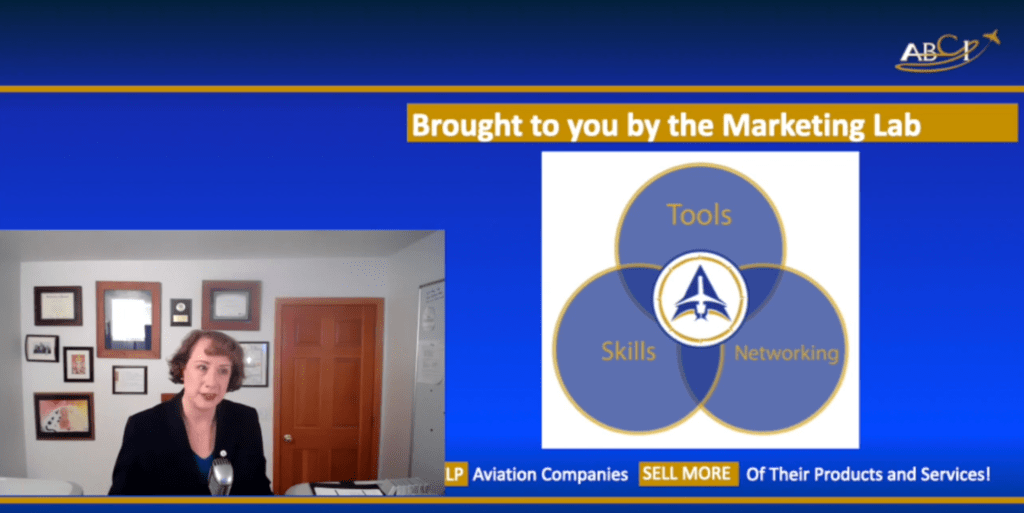


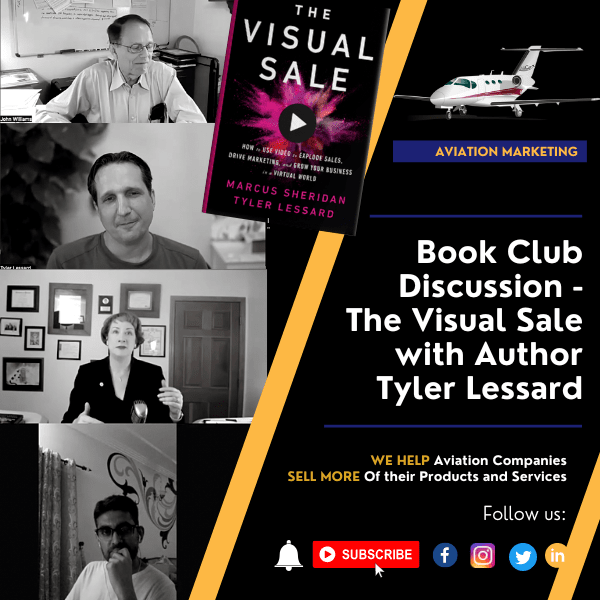


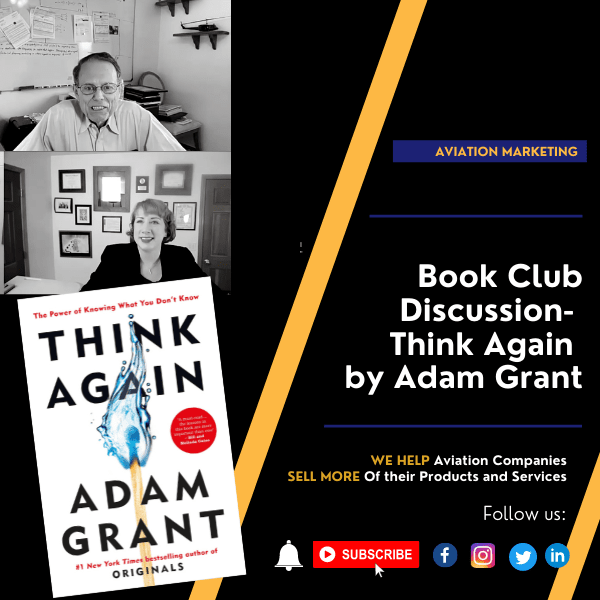
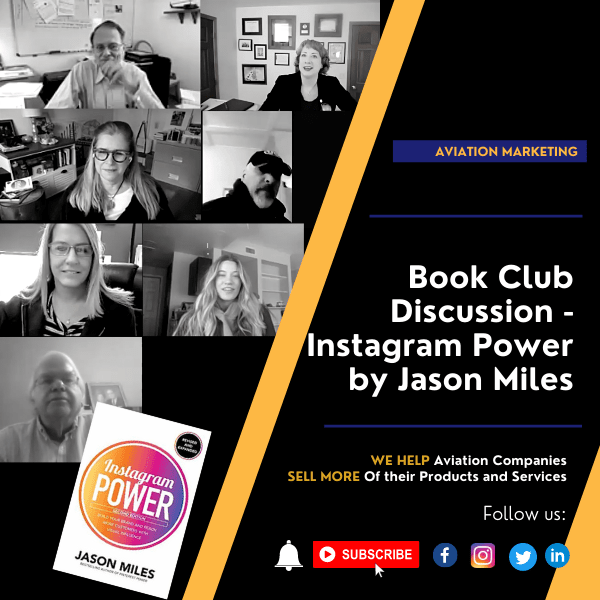

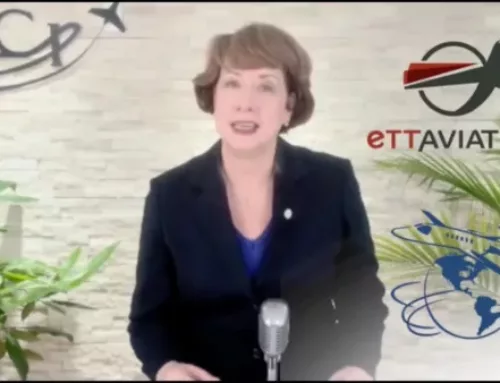
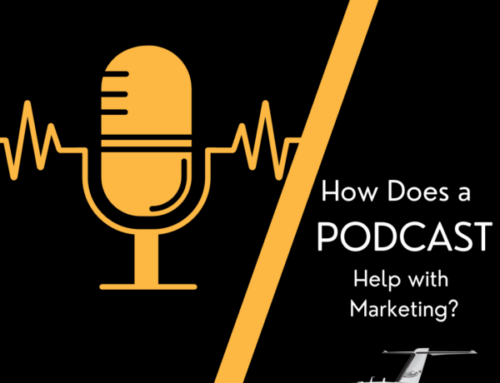
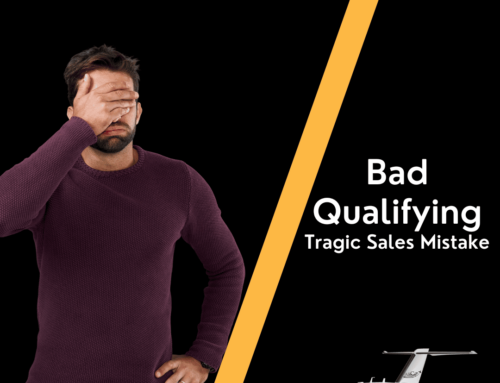

Leave A Comment